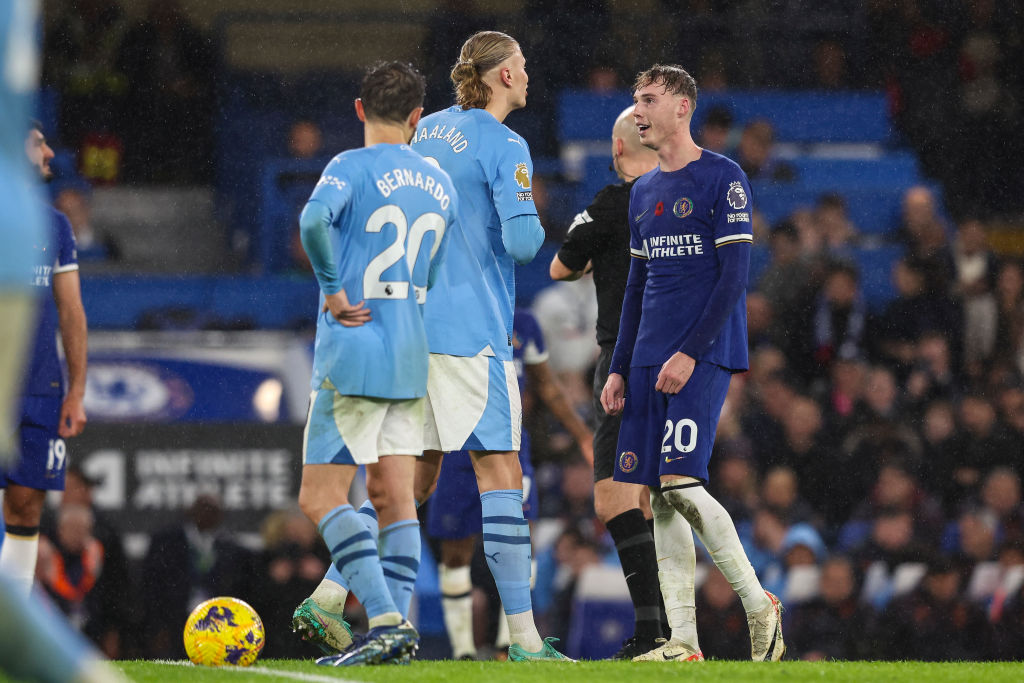
The 4-4 draw between and had a bit of everything, even trying to do some cheeky spying on his former side, which didn’t take kindly to.
Haaland gave City the lead in the first half, only for Thiago Silva and Raheem Sterling to put Chelsea in front, before Manuel Akanji equalised before the break.
In the second half Haaland scored again, Nicolas Jackson levelled for the home side before Rodri seemed to have won it for City with a strike on 86 minutes.
However, the action didn’t end there as Ruben Dias fouled substitute Armando Broja in the penalty box and Palmer confidently stuck the ball past Ederson deep into injury time to make it 4-4.
There was the chance for even more goals after that, with Manchester City winning a free-kick in a very dangerous position in the very last minute of injury time.
The City players were deep in discussion over who would take the set-piece and Palmer thought he would try and get some intel from his former teammates for his current team.
The 21-year-old cheekily wandered into the huddle of City players over the ball, eavesdropping on their chat, but he wasn’t warmly received.
Ruben Dias initially noticed the England Under-21 star and then Haaland took matters into his own hands, shoving him away to make sure he didn’t hear anything useful.
Palmer was taking on Manchester City for the first time since his £40m move from the Etihad to Stamford Bridge on 1 September and admitted it was an odd time on Sunday afternoon.
‘Very, very strange,’ Palmer told Sky Sports of facing his old side. ‘First time I’ve played against City since I left, but I’ve got the utmost respect for the club that I spent 15 years at. It was nice to see some friends, unlucky not to get the win but it was a great game.’
Asked whether he had friends and family in Manchester who will be annoyed with him, he said: ‘Yeah probably, got many City fans I know. But it’s the game innit.
‘It was amazing, I was excited before the game to see some faces and show what I can do. It was a great game, we went behind a few times and bounced back.’
, . , and .




















